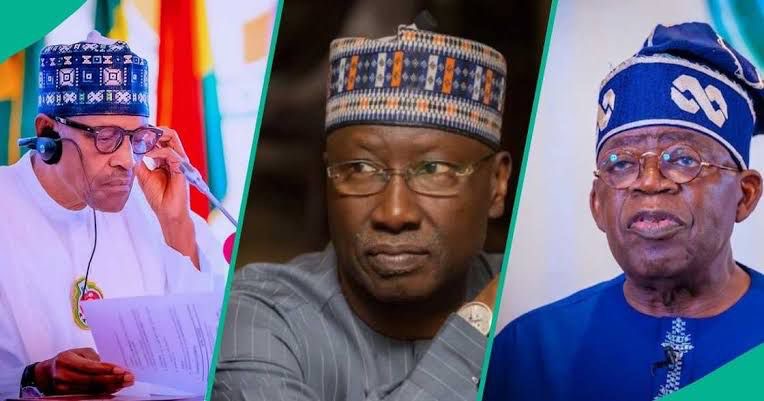
By Usman Ishaq Shehu
PhD Candidate | Editor in Chief, J.O.Comms | Public Affairs Analyst & Strategic Communicator
As someone who has closely followed the evolution of the APC and President Tinubu’s political journey, I feel compelled to correct the record. I even supported President Muhammadu Buhari from the very beginning of his political renaissance to the very end of his administration. I have seen firsthand the sacrifices, the strategic alliances, and the bold decisions that brought the APC to power in 2015.
In a recent lecture on former President Buhari’s contributions to national development, former Secretary to the Government of the Federation, Boss Mustapha, asserted that President Bola Ahmed Tinubu did not singlehandedly make Buhari president and that some of the ongoing reforms under the Tinubu administration were initiated during Buhari’s tenure. While his comments may reflect his perspective, they fall short of historical accuracy and do little justice to the pivotal role President Tinubu played both in Buhari’s emergence and in Nigeria’s current transformation.
Tinubu Was Not Just a Contributor. He Was the Architect.
It is historically indisputable that the formation of the All Progressives Congress in 2013 was the result of a strategic merger masterminded largely by Bola Ahmed Tinubu. His leadership brought together diverse political movements including the Action Congress of Nigeria, Congress for Progressive Change, All Nigeria Peoples Party, and factions from other parties to form a viable national alternative.
More importantly, Buhari had contested for the presidency three times and failed. It was not until the alliance with Tinubu that he succeeded. Tinubu didn’t just provide structure; he delivered the votes. The South-West region, where Buhari had previously struggled, overwhelmingly supported him in 2015 due to Tinubu’s influence. That election marked the first democratic defeat of an incumbent president in Nigeria’s history and Tinubu was the mastermind behind the coalition that made it possible.
Tinubu Is Not Continuing Reforms. He Is Implementing What Others Couldn’t.
Boss Mustapha also claimed that some of the Tinubu administration’s reforms were inherited from the Buhari era including tax reform. While frameworks may have existed on paper, execution is what separates ideas from impact.
Fuel Subsidy Removal
Under Buhari, this remained a politically sensitive topic that was never acted upon. Tinubu removed it on his first day in office, ending decades of fiscal drain.
Naira Unification
The Buhari government discussed exchange rate harmonisation but failed to execute it. Tinubu took the bold step, fully floating the naira and introducing FX transparency.
Comprehensive Tax Reform
While Buhari’s administration laid a few stones, Tinubu is building the structure. He established a credible and independent committee led by Taiwo Oyedele to deliver lasting reform with expert oversight and national consultations.
Investor Confidence
Tinubu’s decisive actions have revived investor confidence, with Nigeria attracting billions in pledges and renewed attention from international markets.
Leadership Is About Action, Not Intention
President Tinubu has consistently acknowledged Buhari’s role in stabilising Nigeria’s democratic journey. However, what we see today is not a mere continuation of Buhari’s legacy. It is a courageous leap forward.
Tinubu has taken politically risky yet economically necessary decisions that others were too cautious to implement. He is not just walking the path. He is paving a new one.
Conclusion
To downplay Tinubu’s influence in Buhari’s victory or his authorship of today’s reforms is to rewrite Nigerian political history. The facts are clear. Bola Ahmed Tinubu was the brain behind the 2015 political revolution and remains the driving force behind the most ambitious reform agenda Nigeria has seen in decades.
Sometimes, people forget quickly. But records do not lie and neither does progress.
